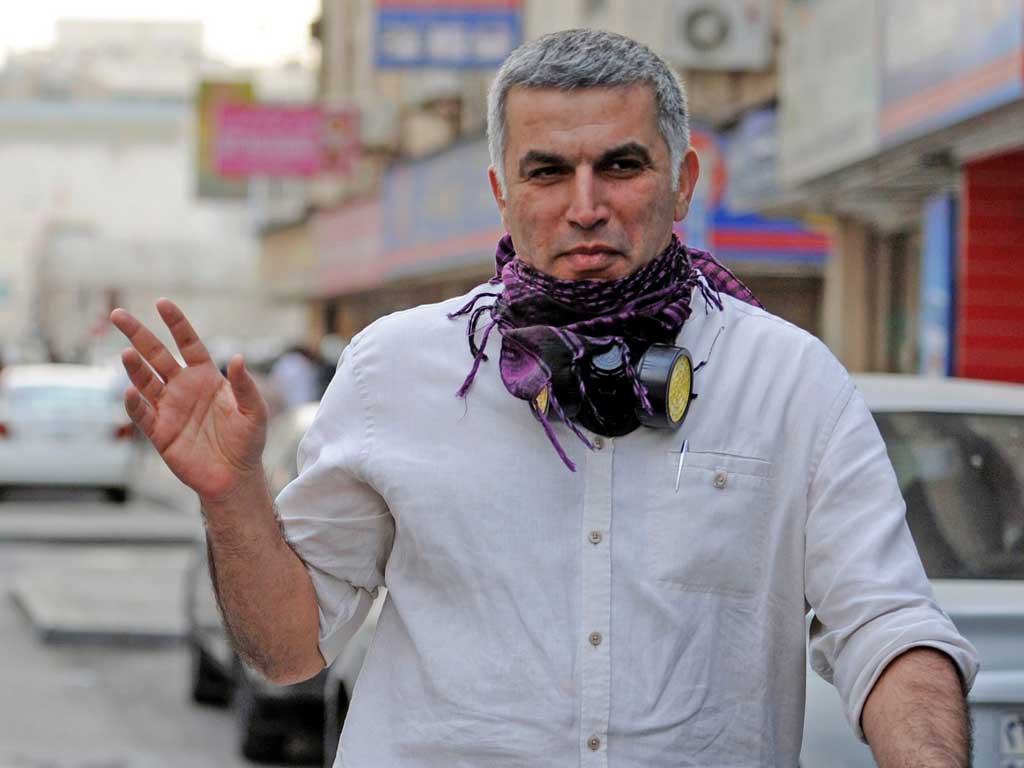Bahraini police seize leading rights activist Nabeel Rajab after trip abroad

Your support helps us to tell the story
From reproductive rights to climate change to Big Tech, The Independent is on the ground when the story is developing. Whether it's investigating the financials of Elon Musk's pro-Trump PAC or producing our latest documentary, 'The A Word', which shines a light on the American women fighting for reproductive rights, we know how important it is to parse out the facts from the messaging.
At such a critical moment in US history, we need reporters on the ground. Your donation allows us to keep sending journalists to speak to both sides of the story.
The Independent is trusted by Americans across the entire political spectrum. And unlike many other quality news outlets, we choose not to lock Americans out of our reporting and analysis with paywalls. We believe quality journalism should be available to everyone, paid for by those who can afford it.
Your support makes all the difference.Bahrain has arrested a prominent human rights activist and critic of the country's ruling family.
Police seized Nabeel Rajab, head of the Bahrain Centre for Human Rights, when he returned from Beirut on Saturday evening, Sayed Yousif Almuhafda, a member of the centre, said. He had met the representative of the UN High Commissioner for Human Rights on his visit to Lebanon.
"The police arrested him near the plane's door. They said they had an arrest warrant from the public prosecutions office," Mr Almuhafda said. "We don't know what the new charges are yet," he said, adding that Mr Rajab already faced earlier charges of calling for and taking part in unauthorised protests. In a statement, Bahrain's ministry of interior confirmed Mr Rajab's arrest "for committing a number of crimes punishable by law". It gave no more details.
Bahrain, which is ruled by a Sunni Muslim monarchy and hosts the US Fifth Fleet, has been in turmoil since activists, mainly from the majority Shia community, began protests for democratic reforms in February 2011 after successful popular revolts in Egypt and Tunisia.
The authorities tried to crush the uprising with martial law and brought in Saudi troops. The ferocity of the crackdown stunned the Shia community and the unrest persists, with mass rallies by opposition parties and clashes between youths and riot police.
Reuters
Join our commenting forum
Join thought-provoking conversations, follow other Independent readers and see their replies
Comments